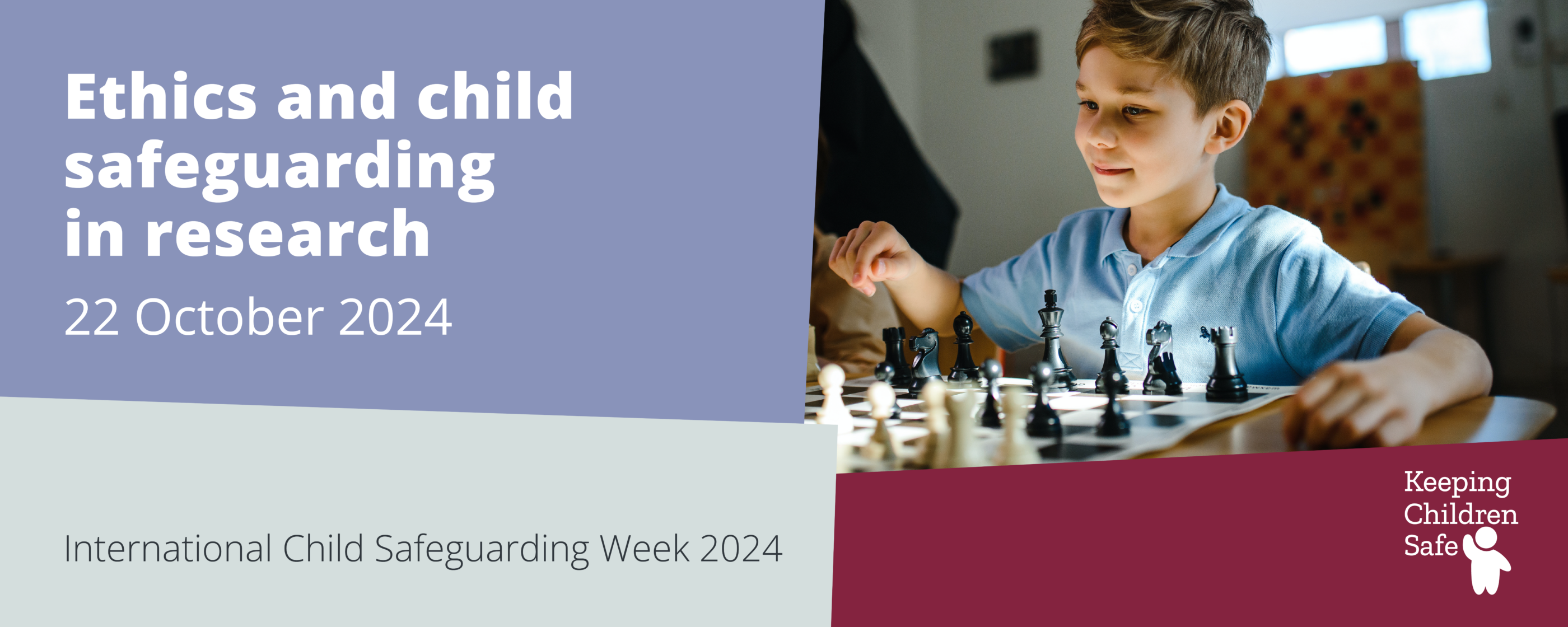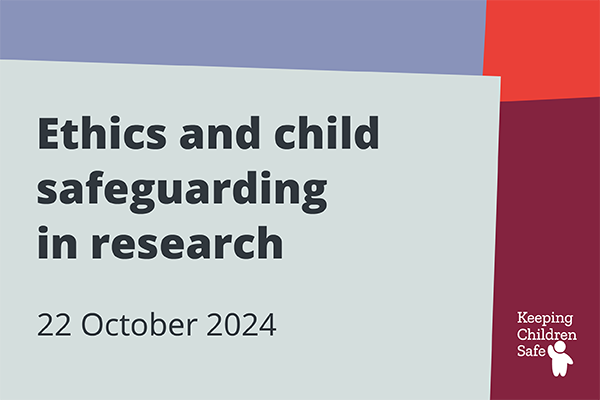
‘Do no harm’ is the cornerstone of all ethics.’
Understanding the implications of ethics and child safeguarding when conceptualising or carrying a research project is fundamental to ensure children’s safety and wellbeing. As stated by Ethical Research Involving Children ‘The most fundamental consideration in undertaking research involving children is deciding whether the research actually needs to be done, if children need to be involved in it, and in what capacity. Accordingly, at the very outset of the research process researchers need to engage with critical issues regarding the purpose of the research and the impact that participating in the research may have on children in terms of potential harms and possible benefits. Assessing potential harms and benefits is not straightforward as these are influenced by a range of factors across the multiple contexts in which research occurs. There can also be divergent opinions about what constitutes harm and benefit, and related issues such as acceptable levels of risk. Ethical research requires reflecting on these and making decisions accordingly, with the aim of minimising risks and maximising potential benefits for the children participating and others.’
As highlighted by SOS Children’s Villages Spain’s Guidelines for Research, when conducting research with children, it is essential to follow clear ethical guidelines to protect their safety and rights ‘All studies must be approved by an ethics committee to ensure they are safe and respectful of participants’ rights. Participation should always be voluntary, and participants must give informed consent/assent before taking part.’ The guide outlines that for studies that allow it, children should be involved in different stages of the research, ensuring their voices are part of the process: ‘When collecting data, whether online or in person, it is crucial to use tools that protect personal data and comply with existing regulations. Additionally, confidentiality must be maintained, and there should be procedures in place to handle serious situations that may arise during the research.’ These measures ensure that the research is both ethical and child safe.
Explore some resources developed by KCS and other organisations on this topic:
- The NSPCC Learning guidance ‘Research with children: ethics, safety and promoting inclusion’
- The website of Ethical Research Involving Children – www.childethics.com
- The ‘Safe childhood guide’ by SOS Children’s Villages Spain (available in Spanish)
International Child Safeguarding Week is a global online campaign hosted by Keeping Children Safe, from 21-25 October 2024, to emphasise that safeguarding children from exploitation and abuse is everyone’s responsibility. It offers daily resources and insights on different child safeguarding themes, all available on the KCS website.
